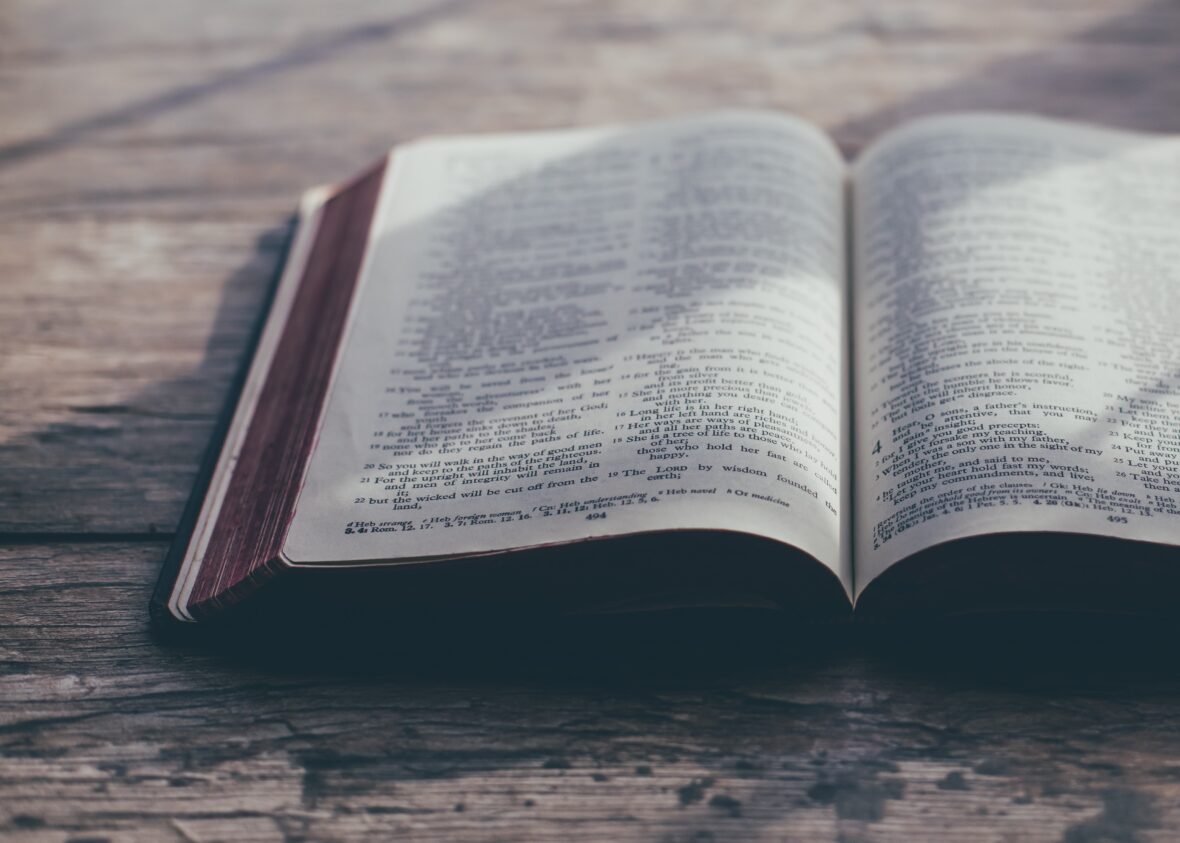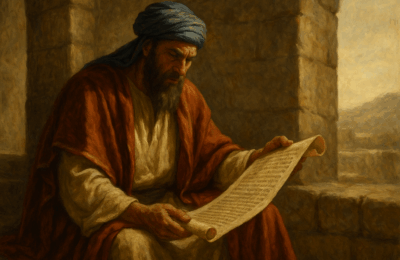Home | Bible Resources | Historical Books
Judges: Disobedience → Discipline → Deliverance: The Cycle of a Nation Without a King
Introduction
Theological Chaos in the Promised Land: A People Without a King, a Covenant in Crisis
The book of Judges opens like a slow-motion car crash in Israel’s redemptive story. The people of God had entered the land under Joshua’s faithful leadership, inheriting the promise. But they quickly became settlers instead of stewards, compromising obedience for cultural comfort. What follows is a sobering 300-year spiral of disobedience, divine discipline, and temporary deliverance—a pattern so predictable it reads like a tragic chorus: “And the people of Israel did what was evil in the sight of the Lord.”
Judges is the canonical hinge between the conquest and the crown. It captures Israel’s transition from victorious inheritance (Joshua) to moral and theological disintegration (Judges), and eventually to the longing for a righteous king (1 Samuel). This book reveals the depravity of man apart from godly leadership and the faithfulness of God despite relentless rebellion. Every judge raised up by God is a reminder that deliverance is not earned, but given; every cycle of sin a cry for the Savior yet to come.
At its core, Judges is not just a political failure—it’s a theological one. Israel forgot her identity, neglected her covenant, and blurred the boundaries between Yahweh and Baal, justice and anarchy, truth and tribalism. The haunting refrain—“In those days there was no king in Israel”—is less about monarchy and more about the absence of godly rule. It points forward to the need for a righteous, Spirit-anointed King who would rule in justice and redeem a wandering people. That hope culminates not in Saul or David, but in Jesus Christ, the final Judge and eternal King.
Judges is a warning to every generation: the absence of obedience is not neutrality—it is rebellion. And rebellion, when repeated, will rot the soul of a people. But even in Israel’s darkest days, God was not silent. He acted. He delivered. He preserved a remnant. In a world where everyone does what is right in their own eyes, Judges invites us to lift our eyes to the One who alone does what is right.
1. Title, Author, and Date
Judges recounts the tragic spiritual decline of Israel after the death of Joshua. It chronicles a 300-year period of repeated rebellion and mercy—a dark chapter in redemptive history where “everyone did what was right in his own eyes” (Judg 21:25). The book prepares the way for kingship by demonstrating the desperate need for godly leadership.
Title Meaning: From the Hebrew שֹׁפְטִים (shophetim), meaning “rulers” or “deliverers.” These were Spirit-empowered leaders who rescued Israel.
Authorship: Traditionally attributed to Samuel; likely compiled during the early monarchy (ca. 1050–1000 BC).
Historical Setting: Covers approximately 1380–1050 BC, a 300-year span of tribal rule and spiritual decline.
Covenantal Role: Judges records Israel’s failure to keep the Mosaic Covenant and illustrates the consequences of syncretism and disobedience.
Redemptive Flow: From conquest to chaos, the book sets up the need for a righteous king who will lead with justice and covenant faithfulness.
📊 Book Stats Sidebar
Chapters: 21
Verses: 618
Approx. Word Count: 18,976 (LSB)
2. Purpose and Themes
Judges explains Israel’s descent into moral, spiritual, and political disarray due to incomplete obedience and covenant unfaithfulness. It illustrates the human heart’s drift toward idolatry apart from divine rule.
- Central Theological Purpose: To expose the consequences of covenant infidelity and emphasize the need for divine deliverance and godly leadership.
- Major Doctrines Emphasized:
- Covenant discipline and restoration (cf. Deut. 28–30)
- The depravity of man and moral relativism
- The ministry of the Holy Spirit in temporary empowerment
- Theological anticipation of a righteous king
- Literary/Structural Features:
- Cycle Pattern: Sin → Oppression → Cry → Deliverance → Rest → Sin
- Framing Refrain: “There was no king in Israel…” (Judg 17:6; 21:25)
- Chiastic Crescendos: Samson narrative as a climactic anti-heroic arc
3. Outline
Judges moves from initial disobedience to national disintegration. The book is structured around repeating sin-cycles and closes with two episodes of shocking covenant collapse.
I. Israel’s Failure After Joshua (1:1–3:6)
A. Incomplete Conquest and Compromise (1:1–2:5)
B. God’s Covenant Indictment and Israel’s Apostasy (2:6–3:6)
II. The Cycles of the Judges (3:7–16:31)
A. Othniel: The Model Judge (3:7–11)
B. Ehud and Shamgar: Unlikely Deliverers (3:12–31)
C. Deborah and Barak: Faith Amidst Fear (4:1–5:31)
D. Gideon: Reluctant Warrior, Faithful Deliverer (6:1–8:35)
E. Abimelech: The False King and Anti-Judge (9:1–57)
F. Tola and Jair: Short-Lived Stability (10:1–5)
G. Jephthah: Outcast Judge with a Tragic Vow (10:6–12:7)
H. Ibzan, Elon, Abdon: Minor Judges in Transition (12:8–15)
I. Samson: Strength Wasted, Grace Revealed (13:1–16:31)
III. Moral Anarchy and Covenant Collapse (17:1–21:25)
A. Micah’s Idolatry and the Danite Migration (17:1–18:31)
B. The Levite’s Concubine and Civil War (19:1–21:25)
Canonical Flow: Judges bridges the conquest in Joshua and the need for monarchy in 1 Samuel, showing why Israel longed for—and needed—a righteous king.
4. Key Themes and Theological Contributions
Judges lays bare the pattern of human rebellion and the astonishing mercy of God. It presses the theological need for divine kingship and covenant restoration.
- Creation to Restoration Motifs:
- Fall: Cycles of idolatry and moral confusion
- Redemption: God’s repeated deliverance through flawed leaders
- Restoration Longing: Points forward to the Davidic king and Messianic hope
- Typological Foreshadowing:
- Judges function as shadowy types of Christ: deliverers anointed by the Spirit
- Samson’s final act evokes substitutionary sacrifice
- Covenant Faithfulness of God:
- God disciplines but never abandons His people (Judg 2:18; cf. Lev 26:44–45)
📌 Memory Verse: Judges 21:25 (LSB) — “In those days there was no king in Israel; everyone did what was right in his own eyes.”
⚔️ Major Rebellions / Turning Points:
- Failure to Drive Out the Nations — A fatal compromise that led to idolatry and cultural assimilation (Judg 1:27–2:3)
- Rise of Abimelech — A self-appointed ruler from within; corruption now came from inside the camp (Judg 9:1–57)
- Civil War Against Benjamin — The tribal breakdown of Israel climaxing in fratricidal violence (Judg 20–21)
5. Christ in Judges
Judges leaves readers longing for a better deliverer. Christ is the fulfillment of the judge motif—sinless, eternal, and sovereign.
- Typological and Redemptive Shadows:
- Judges are Spirit-empowered saviors; Christ is the Spirit-filled Savior-King
- Samson’s death prefigures Christ’s sacrifice: defeating enemies through death (Judg 16:30; cf. Heb 2:14)
- Messianic Trajectory:
- Refrains about the absence of a king prepare for the Davidic line (1 Sam 16), culminating in Jesus as Son of David (Matt 1:1)
- NT Connections:
- Hebrews 11:32–34 commends judges as examples of faith
- Romans 15:4: “Whatever was written…was written for our instruction…”
6. Historical and Literary Notes
Judges is a historical-theological narrative marked by covenantal commentary. It reflects ANE realities while revealing divine intervention.
- ANE Background:
- Canaanite religion, city-states, and fertility worship contextualize Israel’s idolatry
- Warrior judges resemble tribal chieftains found in neighboring cultures—but with divine commissioning
- Genre:
- Historical narrative with theological purpose and covenant lens
- Organized around literary cycles and thematic descent
- Systematic Theology Links:
- Anthropology: Judges portrays human depravity and moral relativism
- Pneumatology: The Holy Spirit’s role is empowering but temporary
- Christology: Highlights need for righteous, eternal leadership
👤 Key Characters Sidebar:
- Othniel – Ideal first judge; empowered and faithful
- Deborah – Prophetess and deliverer; model of spiritual leadership
- Gideon – Doubting warrior transformed into deliverer
- Jephthah – Brave but rash; tragic vow overshadows victory
- Samson – Strong in power, weak in character; redeems in death
- Abimelech – False king; the dark shadow of godless ambition
7. Applications for Today
Judges is more than a history lesson—it’s a spiritual mirror. It confronts modern believers with the dangers of moral drift and the need for faithful obedience.
- Discipleship Formation:
- Warns against complacency and cultural compromise
- Encourages repentance and reliance on the Spirit’s strength
- Worldview and Ethics:
- Rejects moral relativism; upholds objective, covenantal ethics
- Confronts idolatry in all its cultural forms
- Leadership and Mission:
- God uses flawed people—when yielded to Him
- Calls for leaders who fear God more than man and serve with integrity
8. Shoe Leather Discipleship Tie-In
This book shows us that even when God’s people forget His Word and forsake His ways, He remains faithful. Judges reveals the spiritual cost of compromise—and the redemptive mercy of God who rescues again and again. It urges us to reject the lie of self-rule and surrender to the righteous reign of King Jesus. In a world that normalizes chaos and celebrates rebellion, we are called to walk in truth, live in covenant loyalty, and long for the return of our final Judge and eternal King.






